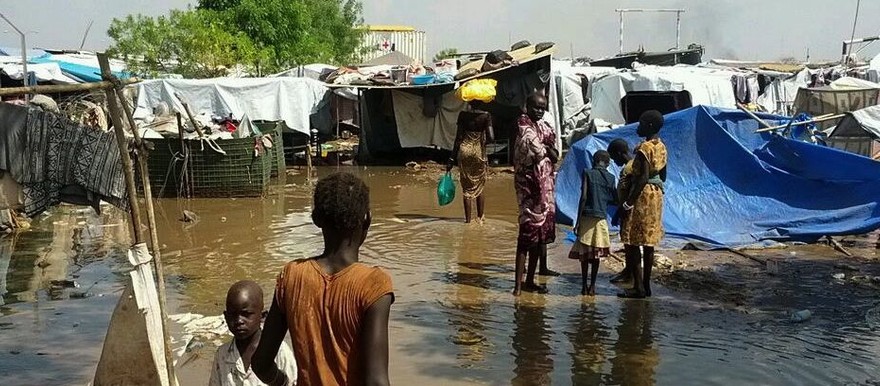Cholera outbreak in Juba last week required an urgent and massive response from aid organizations working in South Sudan. Efforts elsewhere also continued including food airdrops, malnutrition treatment and needs assessments.
About 400 cholera cases have been reported in six locations in Juba County, forcing local authorities to close down schools in the city.
Meanwhile, since the ceasefire was signed on 9 May, displacement levels appear to have dropped slightly in Unity and Upper Nile states while rising in Jonglei.
OCHA, the UN humanitarian coordination office, released a situation report on Saturday covering the period 17-23 May. The information below represents a selection of highlights from the report:
Aid workers started preparations to provide food to 36,000 people in Leer County, Unity State. The county is one of several being supplied by WFP airlifts. Supplies for the county are being pre-positioned in Rumbek in neighboring Lakes State.
Since January some 452,335 children aged 6-59 months have been screened for acute malnutrition, of whom 27,281 (6.03 per cent) have been identified with severe acute malnutrition (SAM) and 46,948 (10.4 per cent) with moderate acute malnutrition (MAM).
Aid workers facilitated community dialogues focused on gender-based violence in Awerial, Bor, Juba, Terekeka, and Malakal.
Household items were distributed in Kodok, Upper Nile State, after registration of 4,000 families. Distributions are planned also for shelter materials in Melut in the same state.
Organizations conducted a ‘rapid assessment’ mission in New Fangak on 17 May, which reported approximately 46,000 displaced people and 55,000 from host communities in need of assistance. ‘Rapid mobile teams’ will deploy to Ayod and New Fangak to provide health, nutrition and water and sanitation services.
Organizations working in the field of water and sanitation (WASH) report shortages of funding and staff. They are working to meet minimum humanitarian standards at various UN-protected camps and also at the Cholera Treatment Centers in Juba.
Rains damaged shelters, drains and latrines at the UN-protected camp in Bor, also flooding the clinic and causing many people to sleep on wet ground.
File photo: A flooded camp in Juba, South Sudan




